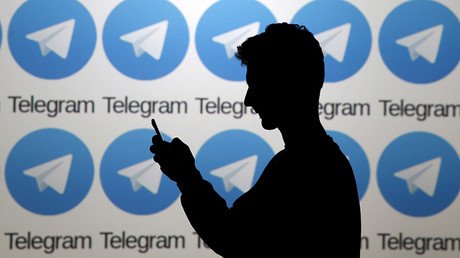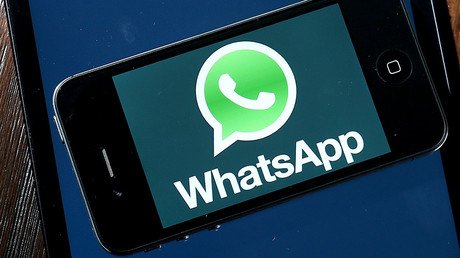Popular messaging app Telegram was used by terrorists to prepare and conduct the April 2017 attack in St. Petersburg, the Federal Security Service (FSB) claims. The messenger will most likely be blocked in Russia.
The statement comes as the messenger faces being blocked if it fails to provide the necessary data for official registration in accordance with Russian law.
Telegram was used by “the suicide bomber, his accomplices and a foreign curator to conceal their criminal intentions at all stages of organization and preparation of the terrorist attack,” the FSB said in a statement.
Terrorists often use messaging apps for secret communication, the FSB noted, adding that Telegram is used more frequently as it provides the opportunity to create chats with a high level of data encryption.
Responding to the FSB accusations, the founder of Telegram, Pavel Durov, said that rejection from encryption in apps like Telegram and WhatsApp in a single country “would make tens of millions of people vulnerable to hackers and blackmailing of corrupt officials.”
“Unfortunately, communication tools such as Telegram and WhatsApp cannot become unsafe only for potential terrorists. The encryption of these services either equally protects all users or all puts them all at risk,” Durov wrote on his VKontakte page.
He added that the weakening of encryption will undermine Russian national security, as “foreign intelligence agencies will inevitably get access to the entire correspondence of Russian citizens.” The risk of terrorist attacks will still exist, Durov claimed, citing as an example the November Paris attacks, in which terrorists used disposable phones and SMS.
Commenting on Durov’s position and refusal to respond to the demands of the Russian media watchdog to disclose information about the company that runs Telegram, Presidential Advisor for Internet Development German Klimenko said that terrorists can use any messaging app, but unlike Telegram, others do not stay away from dialogue.
“But the problem is that we at least have a dialogue with WhatsApp. We have talked to Google, they began to pay VAT. YouTube blocks the video. There is a certain struggle, but we are in dialogue. And Durov’s position is completely anarchic – ‘I won’t’ and that’s it,” Klimenko told RT.
Putin's spokesman, Dmitry Peskov, refused to comment on the blocking of Telegram, referring the question to the head of Roskomnadzor, Aleksandr Zharov. When journalists asked Peskov what messenger the Kremlin’s press service will use if Telegram is blocked, he said that they “will switch to another one which will be more convenient.”
Earlier, Durov said that demands to give “the keys for decryption” to the intelligence agencies violate the Russian constitution. He also noted that the companies which own messaging apps do not have the keys themselves, as they are stored on the users’ gadgets. The same encryption technology is also used by such popular messengers as WhatsApp, Viber, iMessage, as well as Facebook Messenger.
In May, Russia banned several messaging apps, including BlackBerry, Line, and Imo messengers, as well as Vchat video service. Last year, the world's largest business and employment oriented social network, LinkedIn, became the first foreign company blocked by the regulator as it refused to place its data servers inside the country, in compliance with Russian law.


